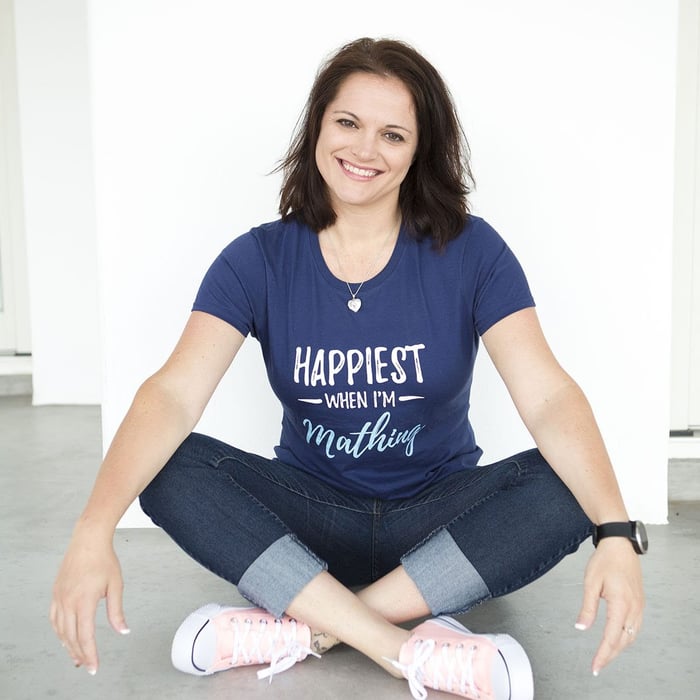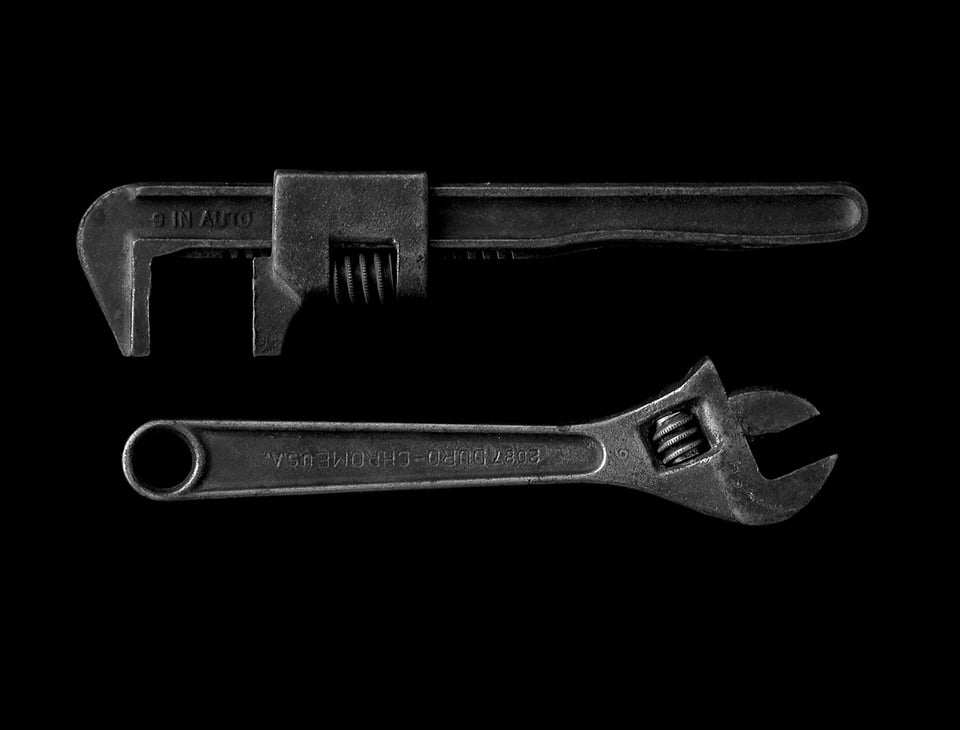
Take the advice from CEOs and founders who reveal how having a budget saves their business, and what they look for when they’re checking the health of their company. A budget quantifies your long-term goals and measures your company's performance. A forecast helps you evaluate your business in the short-term, monthly or quarterly. How you use your budget forecast determines your success or failure.
Get timely, accurate financial reports to make better business decisions. Find an accountant today.
Why do you need a budget and forecast?
Your budget and forecast should give you clarity about where your company is going. According to the founder of Elevating Profits, Amanda Kendall, business decisions are too often made without any financial backing to support that decision.
"Although creating a budget is pretty simple, it is what you do with the budget that really matters. A business must have a budget in order to create a forecast, and the forecast is truly where the rubber meets the road. Small business owners often look at a forecast, if they even do, and say, ‘Oh well we grew 3% last year, so I want to grow 5% this year’ and their forecast maps out that 5% growth and they call it good.”

Amanda Kendall, Founder of Elevating Profits
Beyond projecting growth, forecasting helps you mitigate risks and prioritize opportunities. Kendall says:
“Many businesses have unused resources that they are not taking advantage of. Whether humans, IP, physical or financial, the business is not being leveraged to grow to full capacity.”
A budget and forecast can help you decide which opportunities to pursue or pass. Ara Boyadjian, COO of Progressive Media Group, uses budgeting and forecasting to answer questions such as, “What is it going to cost us to launch this new vertical?” and “What are we contracting to deal with these uncertain times.”
How can your budget and forecast save your business?
Your budget and forecast provide financial direction for the execution of your business. Kendall explains how her company was on the verge of bankruptcy until she saw the untapped potential behind the numbers in her forecast.
“By sitting down and really revising my budget and putting together a forecast, I was able to save the business and improve profit margins by 110% in the span of a year. The forecast allowed me to see where my staff was not being optimized, where we had strains on the business that were hurting our numbers, and where we had IP that was not being leveraged to generate revenue in business. I set a 5 year goal to sell that business, and in December of 2019 sold that business- three years after setting my five year goal.”
If your business operates on a project-by-project basis, a budget helps you determine your variable costs, such as contracted labor and fixed costs, including rent. CEO of Capstone Strategy, a management consulting firm, Dwight McLeod explains:
“I use virtual assistants and 1099's. The budgeting is really, ‘What are my fixed costs?’ And my fixed costs are the things that keep me alive: my internet capability and my mortgage payment. I try to look at our opportunities that are available, the opportunities that I’m going to respond to, and the pipeline.”

How often should you review your budget and forecast?
Checking your budget once a year or your forecast once a month is not often enough. Monthly reviews will give you an inaccurate picture of the short-term. CEO of Crediful, Chane Steiner suggests making a budget forecast and cash-flow for the long-term and short-term:
“Typically, the more often your business checks forecasts for budget and cash-flow, the more accurate your projections will be on a monthly basis.”
Calloway Cook, President Illuminate Labs, also suggests reviewing your budget and forecast once every two weeks. But if you are thinking that checking your budget more than once a month sounds impossible or you don’t have the time, then you are not alone. McLeod admits:
“It's taken me 10 years to even think about a budget. Trying to keep up with it weekly would kill me.”
However, cash flow is dynamic. Mergers & Inquisitions CEO, Brian DeChesare says, “Forecasts are never 100 percent accurate and even calling them 50 percent accurate might be generous.” Being nimble in today’s economic climate requires you to have a current assessment of your business to make better decisions for the future.
How to create a budget forecast?
So how do busy entrepreneurs create a budget and forecast? Founder of iHeartRaves, Brian Lim, establishes a budget for each department to stay within reach of his overall sales and profitability goals.
“We take many factors into consideration such as previous year sales, current trends, growth expectations, etc. and do a budget top to bottom and bottom to top. We include sales, variable expenses, and fixed expenses for each department.”
Brian DeChesare, CEO of Mergers & Inquisitions, advises to forecast for various scenarios.
“Nobody has a crystal ball to predict the future with certainty. However, we are aware of the possibilities of how certain events or transactions might play out. For example, if X happens then our forecast should be Y. If X doesn't occur then our forecast should be closer to Z. Even if something is highly improbable, it's wise to account for any possibility and recent events have made that more clear now than ever.”
Cook recommends outsourcing:
“Budget forecasting falls into a category of tedious, rote work that's perfect for outsourcing to a virtual assistant. As an entrepreneur, time is money and there's an opportunity cost for putting together a budget forecast yourself. There are many U.S.-based virtual companies with reasonable rates, and you should focus on scaling your business rather than digging through every Quickbooks entry over the last several months to put together an updated budget forecast.”
In addition to virtual assistants and online accounting services, you can find financial management support from non-profits who partner with private companies, such as Bench, to offer under-served businesses free forecasting and bookkeeping services. The Association of Enterprise Opportunity(AEO) created the Mainstreet Rise program as a solution to help small businesses thrive during the COVID-19 crisis and beyond.
What should you look for in your budget report?
During your annual budget review, you should compare your budgeted income and expenses to the actual results to determine your business’s performance. Did you make your revenue goals? Did your cost of goods go up? Cook explains how he uses his forecast to spot increases in his expenses:
“When I review our budget forecast I'm looking mostly at the change in ratios, and to build an understanding from that. Did PPC spend go from 15% to 40% of our budget? If so, why? Did warehousing go up? Why? I'm looking to build strategic insights that I may have not noticed otherwise.”
Your goal is to keep actual costs and results in-line with the budget.
Ignite Spot CEO, Eddy Hood, stated that when he checks his 30-day cash flow report, he’s looking for cash position, gross margin, and operational staffing. He also notes that he determines his capacity to provide quality services by comparing the size of his accounting staff to the number of clients.

iHeartRaves Face Mask
As the CEO of an eCommerce business, Lim likes to focus on contribution margin.
“In terms of budget categories, we look at:
Sales - Top line sales goals shape the entire P&L and this is where we generally start.
Advertising - Our advertising budgets are the largest variable expense we have as an eCommerce company outside of the cost of goods sold. This is an area that you could spend an infinite amount on and get zero return so we set strict budgets that are closely monitored.
Payroll - We need to budget for new hires, raises, and bonuses to continuously grow our company”
Rules for creating a good budget
Eddy Hood, Ignite Spot CEO, recommends these 3 rules for a good budget:
1. Have a goal
You should know WHY you are budgeting. It helps to know what type of business you are building.
They’re 2 types: a business you build to exit or a lifestyle business. The first is a business you plan on selling in the future because you love to create new things and move on to the next. The second is a business that you want to run until you pass it on to your grandkids. Knowing what kind of business you are building will determine your strategy and budget.
2. Keep it simple
Simple budgets are followed. People understand them and know what they’re supposed to do.
3. Update it often
Review and update your budget weekly. There’s no such thing as real-time data. The information is always lagging. You need to catch it up on a weekly basis.
Even during times of economic prosperity, budget forecasting is vital to the daily operations for the short-term and the company's goals in the long run. Are you getting strategic insights to make better business decisions from your budget and forecast? Our expert accountants can help. Consult a CPA today.














.png)


